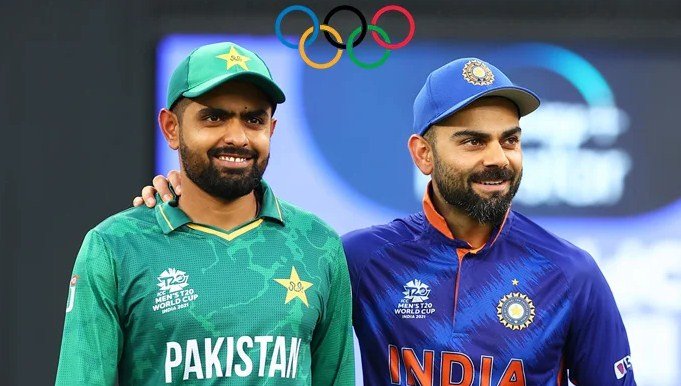Cricket, Australia’s most beloved sport, is one step closer to making a comeback to the Olympic Games after a 128-year hiatus. The sport has been proposed for inclusion in the 2028 Los Angeles Games, along with four other sports: flag football, lacrosse, squash, and baseball/softball.
Cricket’s Olympic history
Cricket made its only Olympic appearance in 1900, during the Paris Games. However, the event was limited to a single two-innings match between Great Britain and France, which the former won by 158 runs. The match was not officially recognised as an Olympic event until 1912, and most of the players were not first-class cricketers. In fact, most of the French team consisted of English expatriates.
Since then, cricket has been absent from the Olympic programme, mainly due to the lack of global participation and the difficulty of fitting a long-format game into a multi-sport event. However, the emergence of shorter formats, such as Twenty20 (T20), and the growing popularity of cricket in countries like the USA, China, and Japan have revived the hopes of cricket fans and administrators to see their sport on the Olympic stage.
Cricket’s Olympic prospects
The International Cricket Council (ICC), the governing body of cricket, has been lobbying for cricket’s inclusion in the Olympics for several years. The ICC believes that cricket can enhance the diversity and appeal of the Olympic Games, as well as provide a boost to the development and growth of cricket around the world.
The ICC has proposed that cricket be played in the T20 format, which is fast-paced and exciting, and can be completed in about three hours. The ICC also plans to have both men’s and women’s competitions, with eight teams each.
The proposal has received support from the International Olympic Committee (IOC), which is responsible for deciding the sports programme for each edition of the Games. The IOC has praised cricket for its relevance, innovation, and community-based nature. The IOC will make a final decision on cricket’s inclusion at its session in India next week, during the ICC Men’s Cricket World Cup.
If cricket is approved for the 2028 Los Angeles Games, it will almost certainly secure a spot for the sport in the upcoming Brisbane 2032 Olympics as well. Australia is one of the leading cricket nations in the world, having won five World Cups and two T20 World Cups. Australia also has a rich cricketing history and culture, with legends like Don Bradman, Shane Warne, and Steve Smith among its icons.
Cricket’s Olympic challenges
While cricket’s Olympic prospects look bright, there are still some challenges and uncertainties that need to be addressed. One of them is the availability and participation of the top players and teams. Some of the major cricketing countries, such as India, England, and Australia, have busy schedules and lucrative domestic leagues that may clash with the Olympic dates. The players may also face pressure from their boards or franchises to prioritise other commitments over the Olympics.
Another challenge is the selection and qualification process for the Olympic teams. The ICC will have to decide how many teams will qualify automatically based on their rankings or performances in other tournaments, and how many will have to go through regional qualifiers or play-offs. The ICC will also have to ensure that there is a fair representation of different regions and continents in the Olympic competition.
A third challenge is the venue and infrastructure for hosting cricket matches in Los Angeles. The USA is not a traditional cricketing country, and there are not many cricket grounds or facilities available. The ICC will have to work with the local organisers and authorities to find suitable venues that meet the international standards and regulations. The ICC will also have to promote and market cricket to attract spectators and sponsors in a country where other sports like basketball, baseball, and American football are more popular.
Cricket’s Olympic benefits
Despite these challenges, cricket’s inclusion in the Olympics would bring many benefits to the sport and its stakeholders. For the players, it would be a chance to represent their country on a global platform and compete for an Olympic medal, which is considered one of the highest honours in sports. For some players from smaller or emerging cricket nations, it would also be an opportunity to showcase their talent and skills to a wider audience.
For the fans, it would be a chance to witness some thrilling matches between different teams and players from different backgrounds and cultures. It would also be a chance to celebrate and support their favourite sport in a festive atmosphere with other sports enthusiasts.
For the administrators, it would be a chance to expand and develop cricket in new markets and regions. It would also be a chance to increase the profile and visibility of cricket among other sports federations and organisations. It would also be a chance to generate more revenue and resources for cricket through broadcasting rights, sponsorships, and grants.
Cricket is poised for a triumphant return to the Olympic stage after a 128-year absence from the international sporting event. The sport has been proposed for inclusion in the 2028 Los Angeles Games, along with four other sports: flag football, lacrosse, squash, and baseball/softball.

